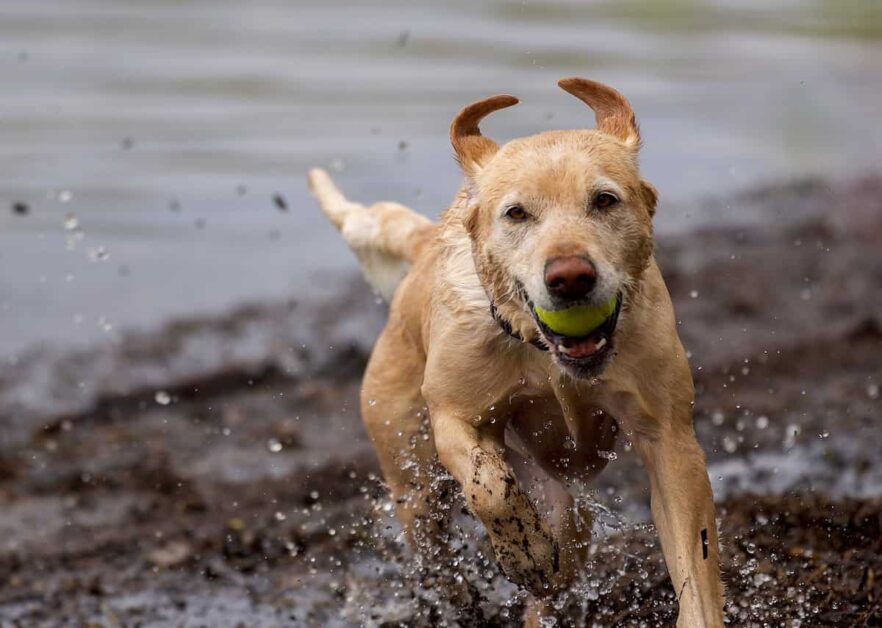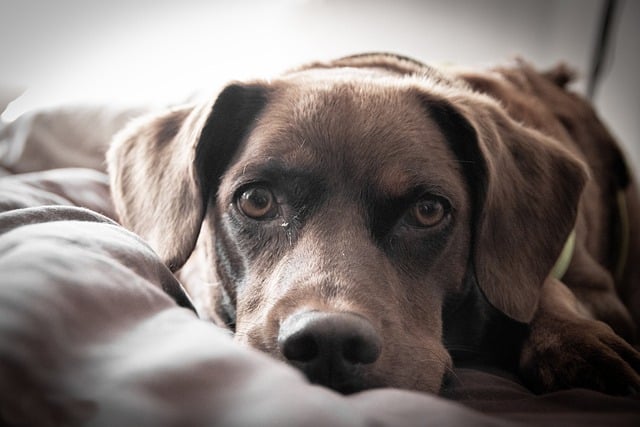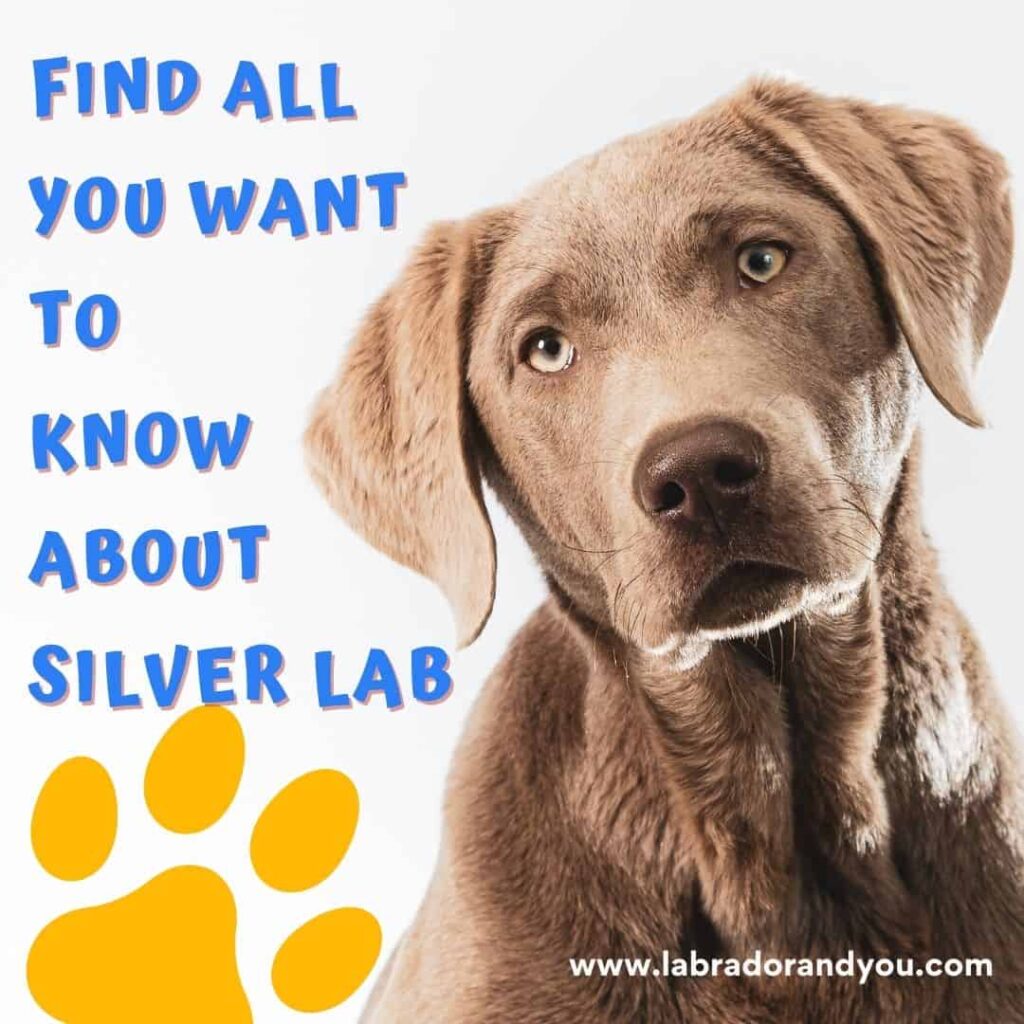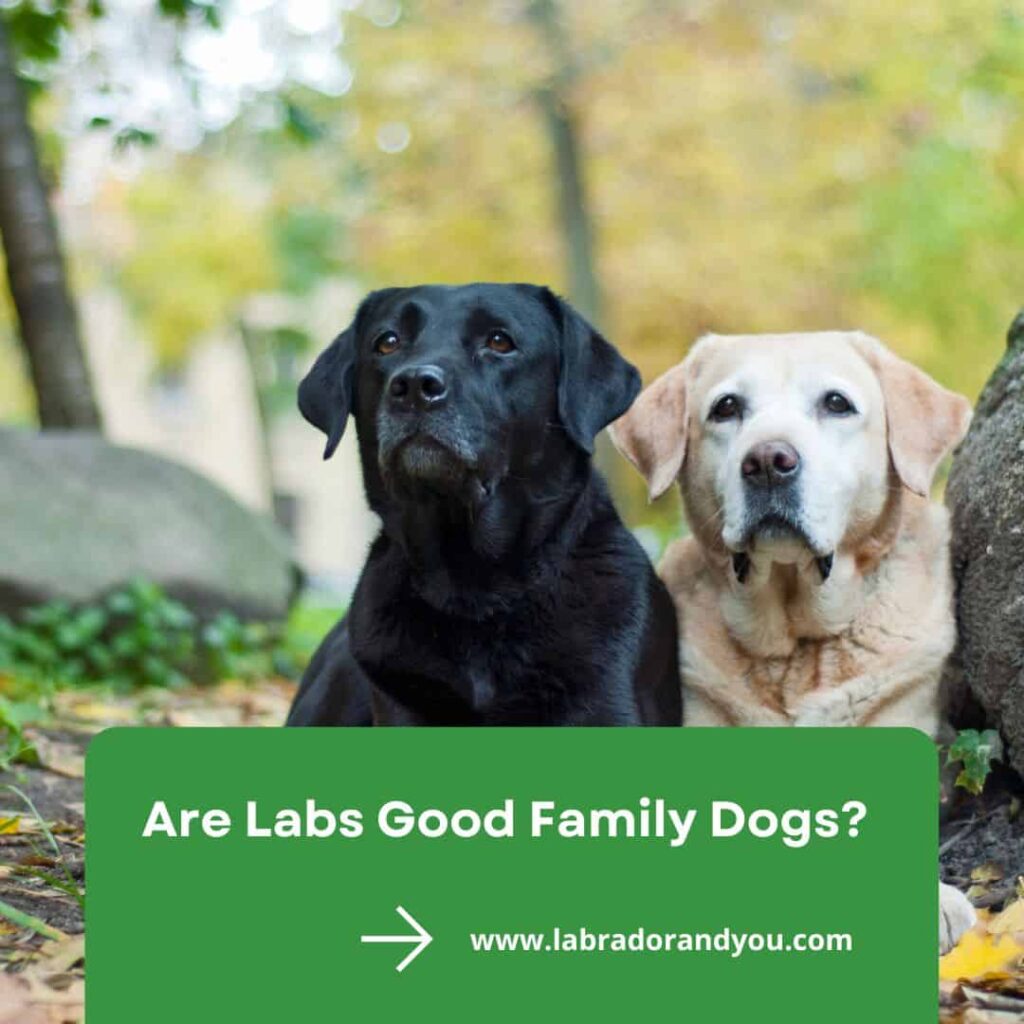Is your dog looking thinner than usual? Wondering, “Why is my dog so skinny?” Weight loss in dogs can result from various factors, such as diet, environment, or underlying health conditions. This article will guide you through understanding what might be causing your dog’s weight loss, signs to watch for, and when it’s time to seek professional help.

Understanding Your Dog’s Weight
To discern whether your dog is underweight, it’s essential first to understand what constitutes a healthy weight range for their specific breed and size; this involves regularly checking their body condition score, which can be done by assessing the visibility of ribs or spine, palpating them for notable bone structures and observing the tuck at their waist.
What is a healthy weight for a dog?
A healthy weight for a dog varies based on its size, age, and breed. A fit dog will have a small layer of fat over the ribs. When you look at your dog from the side, its belly should be higher than its chest.
From the top view, it should show some shape – not too round or too thin. It’s key to keep dogs at their right body weight to avoid health problems like joint issues and heart disease.
Using proper methods like body condition scoring can help check if your pet is in good shape or not.
How to check your dog’s weight?
Checking your dog’s weight is not hard. Here are some steps to make it easy:
- Start with a body fat check. Use a body condition scoring method. This is like the body mass index in people.
- You can feel your dog’s body. Look for its ribs, lumbar part of the back, and pelvic bones.
- These bones should not be too easy to see or feel.
- They will stick out on an underweight dog.
- If the bones stick out, your dog might be too thin.
- A healthy-weight dog has a normal body score.
Reasons Why a Dog May Be Losing Weight
Your dog could be losing weight for a variety of reasons. Dietary changes may lead to lower caloric intake. Intestinal parasites can cause malabsorption, making it hard for your pet to gain weight.
Diabetes type 1 or 2 can make dogs lose weight despite regular feeding. Malnutrition from poor quality dog food results in insufficient nutrients being absorbed, causing your dog’s weight loss.
Dental disease might be causing pain during eating, leading to reduced appetite and consequent weight loss. Kidney disease makes dogs sick and reduces appetite significantly causing them to become thin over time.
The same goes for liver diseases, which severely affect the digestion system of dogs leading to significant body weight reduction. Heart disease often leads to fatigue which decreases their activity level, and hence, muscle mass declines with a sudden reduction in appetite.
Similarly, cancer takes a heavy toll on a dog’s health by high energy demands resulting in noticeable fat and muscle wasting eventually turning them skinny if.
Dietary changes
Dietary changes can make your dog lose weight. Adding new pets to the home can change your dog’s eating habits. The new pet might eat some of the food that was meant for your dog. This means less food and fewer calories for your dog, which leads to weight loss.
It is also key to note that bad food or poor nutrition can hurt a dog’s health and lead to fur loss among other disorders. So, when you change what you feed your dog, ensure it is good quality and has all the nutrients they need.
Intestinal Parasites
Bugs in the belly can make your dog lose weight. These bugs are called intestinal parasites. They live and eat inside your dog’s tummy, making it feel full. This means your dog does not want to eat food because it feels full of these nasty bugs! Worms such as tapeworms are common types of these parasites.
Some signs that show your pet could have this include vomiting, tiredness, upset stomach, diarrhea, or a dry coat. If these symptoms occur, you should take your dog to a vet for a check-up and treatment.
The vet will give medicine to kill the bugs and help regain lost weight due to the bug infestation.
Diabetes
Diabetes is a health problem that can make dogs lose weight. Dogs with diabetes don’t feel like eating much. So, they may not eat enough food to keep their weight up. This type of diabetes in dogs is called canine diabetes mellitus.
A dog with this health problem drinks more water than usual. High blood sugar levels lead to this increased thirst. The dog may also have too much energy or stay out in the cold for too long.
Both of these things can cause weight loss as well.
Diseases like liver disease can start in dogs if the diabetes doesn’t get treated right away. A good diet is key for a dog’s health when it has diabetes. It helps to keep its blood sugar level steady and keeps its weight healthy.
Malnutrition
Dogs get very skinny from not eating right. This is called malnutrition. It means the dog’s food does not have enough good stuff like vitamins, protein, and other needed items. Malnourished dogs feel weak and tired all the time.
They also get sick often because their bodies can’t fight off germs well. Their skin may look bad or they might lose fur too much as well. Some dogs don’t eat enough because their stomachs hurt or they simply don’t want to eat what’s given to them.
Dental Disease
Bad teeth can make your dog skinny. Dogs, especially older ones, often have dental disease. They may have broken or infected teeth. Some get gum problems like gingivitis and gum disease.
These things cause mouth pain and loss of appetite in dogs. This means they eat less and start to lose weight quickly. Getting your dog checked by a vet is important if you think it has dental issues.
Kidney Disease
Kidney disease in dogs can lead to a lot of weight loss. It can make your dog feel sick and not want to eat. This happens because the disease changes their hormones and makes them feel very tired.
Often, dogs with kidney problems will spend a lot of time throwing up or feeling weak. They may also have itchy skin or go pee a lot more than usual. A blood test at the vet’s office can tell if your dog has this problem.
Liver Disease
Liver disease can make dogs lose weight. A sick liver does not work well. This makes a dog eat less. Eating less leads to weight loss. Hepatic disease is another name for liver disease in dogs.
Low albumin levels are seen in dogs with this problem too. Albumin is a type of blood protein which drops when the liver fails or doesn’t function correctly. Dogs also get sick more often, showing signs like being sick, eating poorly, and losing weight if their livers fail over time.
Heart Disease
Heart disease can make dogs lose weight. Dogs with this problem may eat less food. They also lose muscle because of the sickness. Some fat dogs may get heart disease later on as well.
If you notice your dog is thin and eats less, it might have heart issues. Take your pet to a vet if they seem unwell or losing weight for no clear reason.
Cancer
Cancer leads to weight loss in dogs. This happens slowly over time, even if your furry friend is eating the same amount of food. Dogs with cancer often don’t feel like eating. They might start losing muscle and get skinny.
Weight loss can make your dog’s health worse. Some common signs are ribs showing or less energy for playtime.

Signs of Unexplained Weight Loss
Unexplained weight loss in your dog can be quite glaring, as it often manifests physically. The visibility of ribs and spine is an obvious indication of possible weight issues. In addition, their energy levels may noticeably dip and they might lose interest in food.
A drastic change such as thinning fur or a shift in behavior shouldn’t be overlooked either, as these signs could imply a greater underlying concern contributing to their weight loss.
Visible ribs and spine
You can tell your dog is too skinny when you see its ribs and spine. These bones should not stick out much. If they do, your dog may be underweight or sick. Also, if there is a lot of rib when you touch the skin and rib on the side, your dog might not weigh enough.
Do take care though! Not all dogs with visible ribs are unhealthy; some breeds have this naturally. Still, if you can see more than just the last few ribs or if bones in other areas like hips and shoulders show too much, it’s time to act.
It means your dog needs more food or could have a health problem that makes him lose weight even when eating right.
Decreased energy and appetite
Your dog may not want to play as much. It might sleep more often. You might see a fall in its eating too. This is called anorexia in dogs. Dogs can stop eating for many reasons. They can feel sick or hurt, be stressed, or have trouble with their teeth and mouth.
Not being able to smell food well can also make them eat less than normal. The less your dog eats, the weaker it gets over time. This quick weight loss could mean that there’s something wrong with its liver or another body part inside it.
Thinning fur
Your dog may be losing too much weight if its fur is thinning. The dog’s fur can start to shed a lot. Or, it might even get some bare spots. These spots could mean that the dog has an infection or a disease.
Alopecia, which means odd hair loss, can make your pooch look skinny as well. The texture of their coat may also change and become less dense if they are not eating right or are sick.
Changes in behavior
Dogs may act different when they lose weight for no clear reason. They might stop eating their food or play less. These behavior changes can be signs of unexplained weight loss in dogs.
It’s not just about how your dog looks, but also how they behave that tells there might be a health problem.
When to See a Veterinarian
If your dog exhibits rapid or persistent weight loss despite a balanced diet, or shows other worrying symptoms such as lack of energy, drastic behavioral changes, or diminished appetite, it is crucial to schedule an appointment with a veterinarian promptly.
Sudden or rapid weight loss
Dogs can lose weight fast. This is a bad sign and it often tells us they are sick. Just like diabetes in dogs, pain issues can also lead to fast weight loss. Sometimes your dog may not eat well or be active enough because of these problems.
Rapid and big changes in weight are alarming signs for any pet owner. If this happens, get help from the vet right away.
Persistent weight loss despite proper diet
Your dog may become thin even if it eats well. This weight loss can point to many things. It could be everyday stress or a big health worry, like heart disease. Surgery or bad reactions to drugs can also make your dog lose weight.
Dogs with sugar issues might eat right but still get skinny and lose muscle. Do not wait for your pet’s hunger to go away before seeing this is a problem. Changes in how much they eat, act or look are signs too.
Other concerning symptoms
Dogs can show strange signs when they are sick. One sign might be that your dog is not eating enough food. This is called anorexia in dogs and can lead to weight loss. Your dog might stop showing interest in their favorite meals or turn away from food completely.
Some dogs have eyes that look cloudy or hazy, which also shows something’s wrong. If you see your dog drinking too much water or going to pee a lot, it could mean they are sick as well.
A constant infection that does not go away could be another sign of a health issue causing weight loss.
Diagnosing and Treating Weight Loss in Dogs
Veterinarians diagnose weight loss in dogs through a comprehensive physical examination and various diagnostic tests, then prescribe an appropriate treatment plan that may involve diet adjustments and medication.
Physical examination and diagnostic tests
Looking at your dog can tell you a lot. But sometimes, you need to do more. That is where physical exams and diagnostic tests come in. They help us find out why a dog is losing weight.
- Your vet will first look at your dog’s body. This is called a physical exam.
- In the exam, the vet looks for signs of disease.
- Next, your vet may do some blood tests.
- A complete blood count (CBC) is a common test.
- The CBC shows if there are problems with your dog’s blood.
- Another test is the serum biochemistry profile. It checks for health issues in the body.
- Your vet may also need to look at your dog’s pee or poo. These are called urinalysis and parasite testing.
- Sometimes, the cause of weight loss lies in what your dog eats and does each day. The vet will ask about this too.
- After all these steps, your vet has many clues about what might be wrong.
- If your dog has an illness, it needs treatment right away.
- Treatment can mean getting rid of parasites or handling other diseases.
- Other times, it means changing what your dog eats or how much it moves around.
Management through diet and medication
Your vet may use diet and medicine to better your dog’s health. First, they might change what your dog eats. A special diet can solve some digestive system problems. This could also help if the weight loss is from bad food or lack of key nutrition.
Second, your dog might get medication for its problem. Medicine can control diabetes or kill worms in the belly. It can even slow down rapid weight loss in older dogs. Both a new diet and medicine are part of canine weight management.

Prevention Tips
Provide your dog with a balanced diet and appropriate portion sizes. Schedule regular veterinary check-ups to catch potential issues early. Maintain good dental hygiene in your pet to prevent oral diseases that might cause weight loss.
Be observant of any changes in behavior or eating habits, as they can be significant indicators of underlying problems. Implementing these preventive measures can help ensure that your dog maintains a healthy weight range amidst future health challenges.
Proper nutrition and portion control
Giving your dog the right food is a must. It helps keep them in good shape. Nutrient-rich foods are best for this job. They help to make sure your dog has what it needs to stay healthy.
Too much food can be just as bad as not enough, though. We call this portion control. Making sure you give your dog the right amount of food each time will stop it from getting too fat or too thin.
Checking your dog’s body size and muscle tone often can help.
Regular vet check-ups
Your dog should see the vet often. This is key in stopping a dog from being too thin. At these check-ups, the vet can find health problems early on. They use tests to watch your dog’s weight and overall health.
An accurate digital scale helps them do this well. So, regular vet check-ups are very useful for your dog’s health and weight.
Dental hygiene
Taking care of your dog’s teeth is key to good health. This means brushing them often with special dog toothpaste. If left alone, plaque and tartar can build up on the teeth. This causes gum disease, bad breath, and even tooth decay! Poor dental hygiene can cause other problems too like heart disease.
So keep those teeth clean! Regular dental checkups at the vet are also a must. These visits will help find any signs of gum inflammation or more serious gum diseases early on before they get worse.
Helping Your Dog Gain Weight
Discover how to effectively help your dog gain weight through a veterinarian-approved plan, the right food choices and beneficial supplements. Continue reading to learn more about this important process.
Working with your vet to develop a plan
Your vet is key in making a plan for your dog to gain weight. They can pinpoint the cause of your dog’s skinny condition. Stress may be one reason, and a trainer or vet can work together to solve this problem.
Your vet will also guide you on how much food your dog should eat each day. In severe cases, they may suggest extra steps for weight gain. It takes bold commitment from you to stick with the plan and help your pooch get fit again.
They make plans that match each individual dog’s need to bring them back to health.
Choosing the right food
You need to pick the right food for your dog. Not all dog foods are the same. Some help dogs gain weight better than others. Foods high in fat and protein can be good for this. Look for foods made from real meat, not cereal grains or meat meals.
Also look for healthy fats and complex carbs in the list of ingredients. High-quality pet food helps dogs put on weight in a good way without getting sick or feeling bad.
Providing supplements
Your vet may suggest supplements to help your dog gain weight. These are like extra food that brings good things for your pet’s body. One of these is probiotics. Probiotics aid in digestion and boost the immune system’s strength.
Another supplement is a weight gainer. It fills up your dog with healthy stuff without too much protein, which could be harmful over time. Sweet potato and pumpkin can also add some weight onto your pet’s body in a safe way.
Other Factors That Can Affect a Dog’s Weight
Your dog’s breed and age play a role in its weight, with some breeds naturally leaner than others and older dogs potentially experiencing weight loss due to health conditions. This section will delve into the impact of these factors on your pet’s physique.
Age and breed
Dogs get old, and it can affect their weight. Senior dogs often drop pounds because they eat less. Their muscles also become smaller. Breed matters too when we look at a dog’s weight.
Different breeds have different body sizes and ways of using food for energy.
For example, small dogs like Chihuahuas need fewer calories than larger dogs like Labradors. Yet, some breeds are prone to getting fat easily while others stay slim with ease. So age and breed play big roles in your dog’s weight.
This helps us see why some dogs might seem skinny when they are just right for their kind and age.
Underlying health conditions
Dogs can lose weight if they have health problems. These might not be easy to see. Diabetes is a common one. Dogs with diabetes cannot use sugar for energy so they start to lose weight.
Another condition that may cause slim dogs is cancer. Tumors grow and take food away from the dog’s body which leads to loss in size.
But there are others too, such as Addison’s disease or hyperthyroidism, where hormone balance gets off track and affects how food is used or stored by the body.
All of these conditions need medical care. If your dog has sudden weight loss without changes in diet or activity level, it’s time to see the vet right away.

Conclusion
Healthy dogs have a good body shape. If your dog is too thin, it may be sick. You must find out why your dog is losing weight fast. Take your skinny dog to the vet for help and advice.
FAQs on Why Is My Dog So Skinny
1. What Health Problems Can Cause A Dog To Be Underweight?
Illnesses like parasites, infections, cancer, and metabolic disorders can lead to weight loss in dogs.
2. How Can I Tell If My Dog Is Too Skinny Or Underweight?
Look at your dog’s ribs, spine, and waist. If they are protruding or easily felt, your dog may be underweight.
3. What Should I Feed An Underweight Dog To Help Them Gain Weight?
Feed a high-quality, high-calorie puppy or premium adult dog food to underweight dogs and add supplements if needed.
4. How Much Should I Feed An Underweight Dog?
Start with the recommended amount on the dog food label and gradually increase by 10-20% if needed to reach a healthy weight.
5. When Should I Take My Underweight Dog To The Vet?
Take them to the vet promptly if you notice sudden or rapid weight loss to check for underlying illness.
6. Can Stress Or Anxiety Cause A Dog To Lose Weight?
Yes, stress and anxiety can cause a loss of appetite and subsequent weight loss in dogs.
7. What Are Signs My Underweight Dog Needs A Vet?
Lethargy, diarrhea, vomiting, increased drinking/urinating, or poor coat are signs of illness.
8. Should I Change My Underweight Dog’s Diet?
Don’t make sudden changes; gradually transition to a high-calorie or puppy food under your vet’s guidance.
9. How Often Should I Feed An Underweight Dog?
Feed smaller, more frequent meals and use supplements to increase calorie intake if needed.
10. Will My Dog Gain Weight Back On Their Own?
If there’s no underlying illness, increasing calories, feeding schedule changes, or diet adjustments can help them gain weight.
Author Profile
- Site Owner And Dog Lover
-
Aritra, the founder of Labradorandyou.com, is a lifelong dog lover whose passion ignited for Labradors for their loyalty and intelligence. With extensive research and personal experiences, Aritra has become a Labrador expert, offering a rich resource on the breed. Labradorandyou.com provides reliable, timely, and evidence-based information, including Labrador-specific product reviews, training techniques, and care tips.
Labradorandyou.com was born out of Aritra's passion and his desire to share his profound knowledge about the breed. The site serves as a comprehensive resource, offering a wealth of up-to-date information for Labrador owners and enthusiasts alike
Also by the author
-
 Lab-TypesNovember 17, 2023Old Dog Seizures: Causes, Symptoms, and Treatment Options
Lab-TypesNovember 17, 2023Old Dog Seizures: Causes, Symptoms, and Treatment Options
-
 Lab-TypesNovember 17, 2023Why Is My Dogs Poop Yellow? 8 Reasons & Solutions
Lab-TypesNovember 17, 2023Why Is My Dogs Poop Yellow? 8 Reasons & Solutions
-
 ReviewsNovember 17, 2023The Only Hill’s Science Diet Review You Need To Read
ReviewsNovember 17, 2023The Only Hill’s Science Diet Review You Need To Read
-
 Lab-TypesNovember 17, 2023How To Adopt An Emotional Support Dog?
Lab-TypesNovember 17, 2023How To Adopt An Emotional Support Dog?





